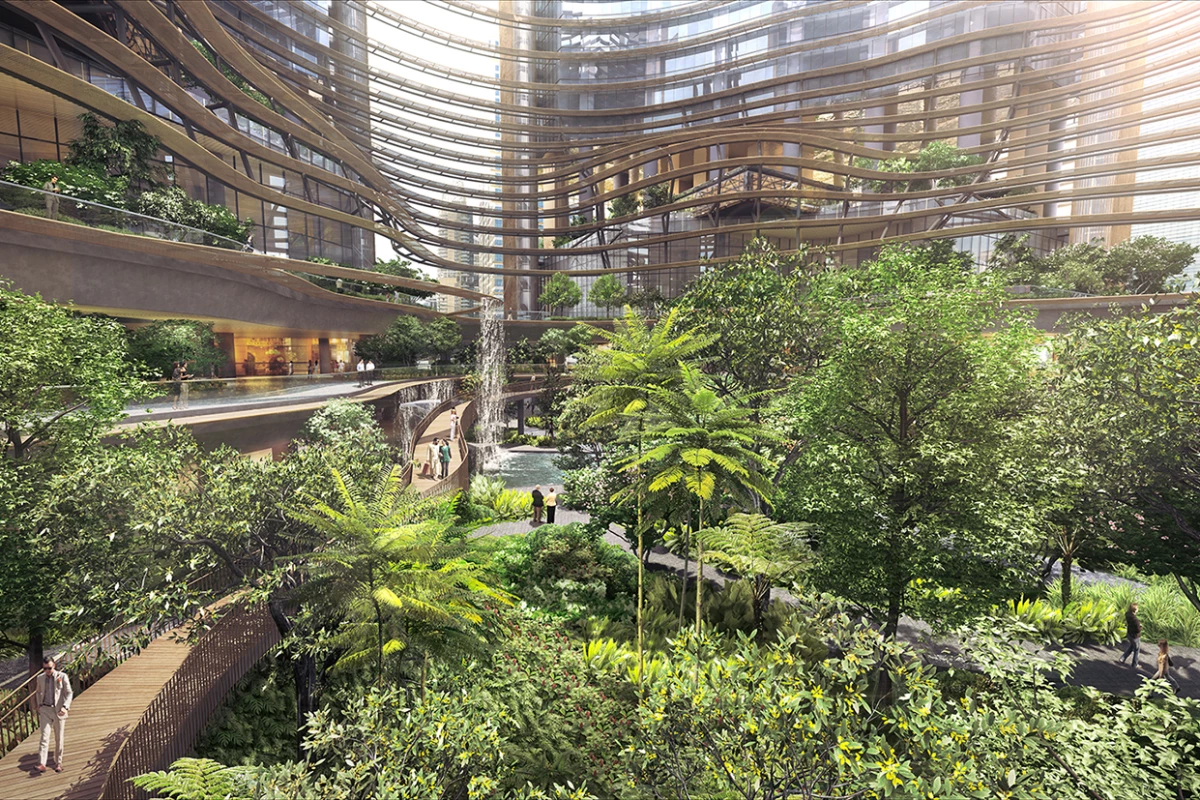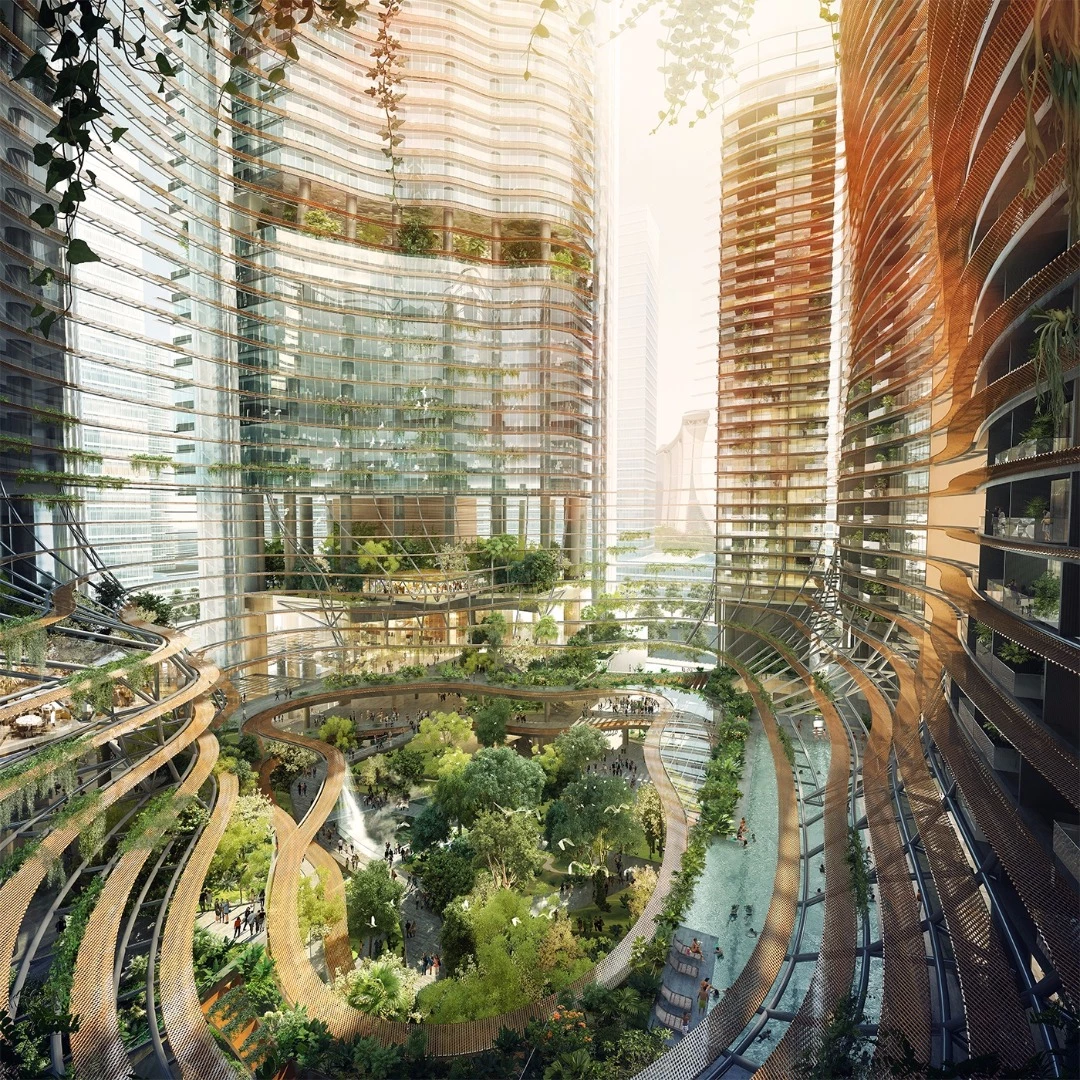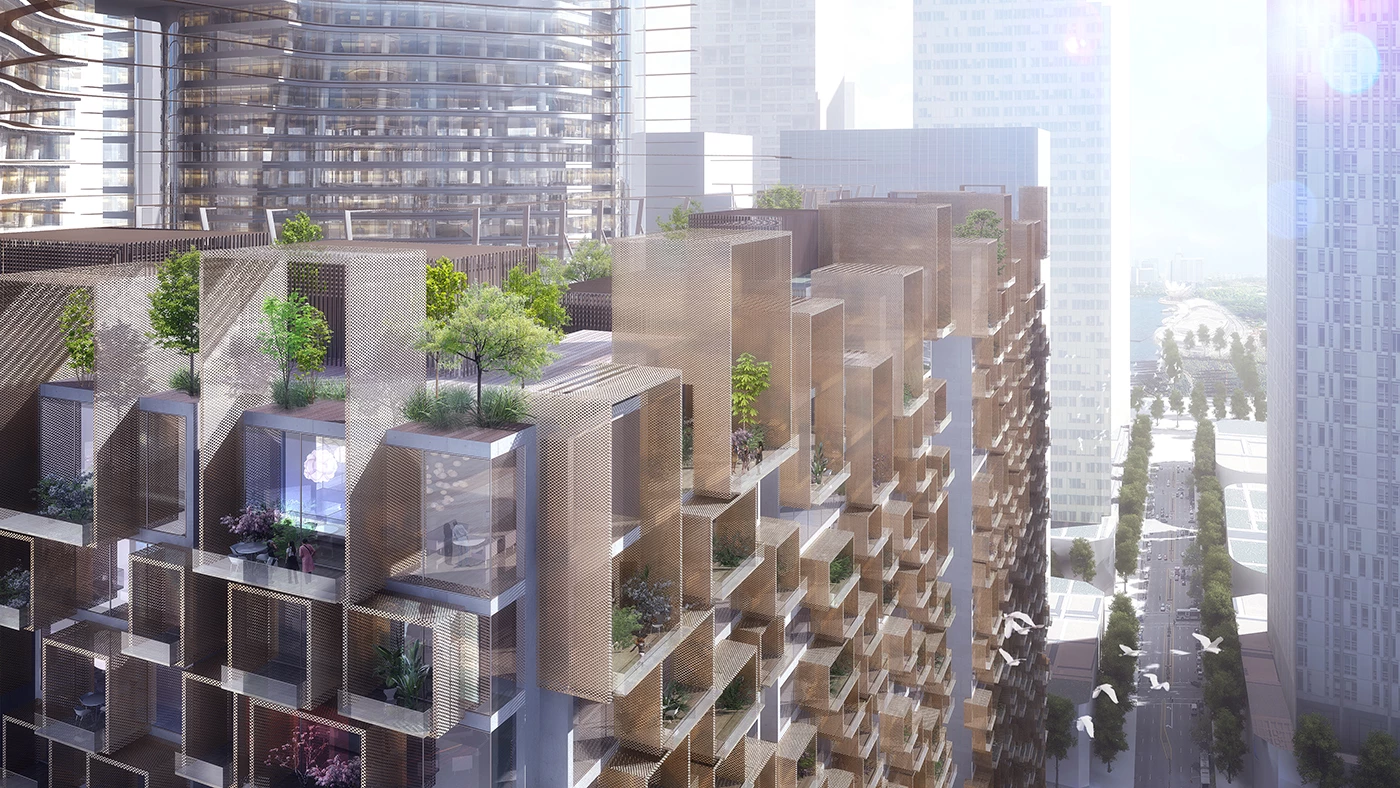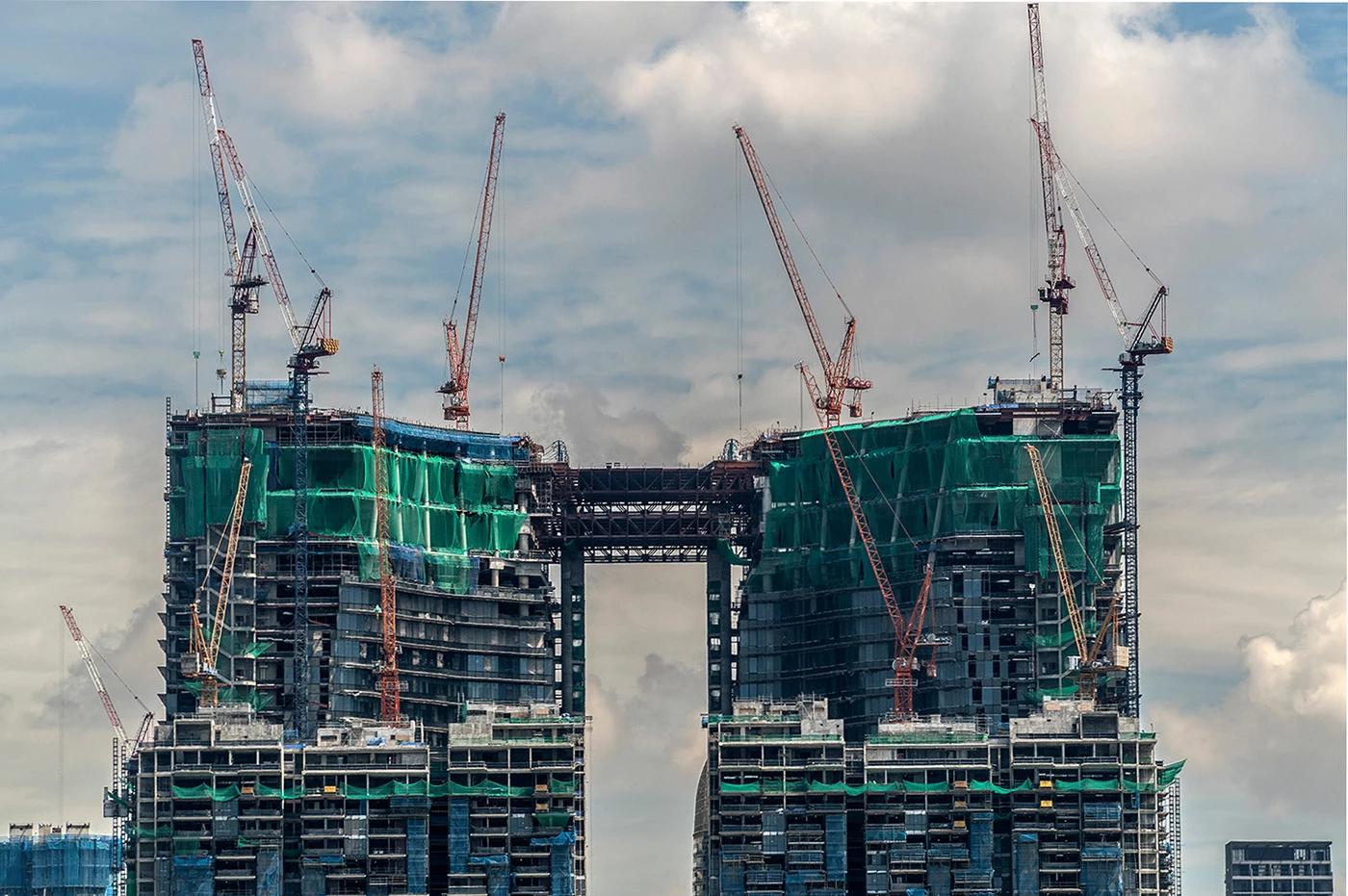When you live in one of the world's most densely populated cities, green space can seem almost non-existent. That won't be the case for people who frequent Ingenhoven Architects' Marina One development in Singapore, which is centered around a huge, lush and green biodiversity garden.
Work on the high-density, high-rise Marina One project, which is similar in some aspects to Ingenhoven's Toranomon Hills development in Tokyo, Japan, began in 2011 and construction has recently topped out. Located in the Marina Bay area of Singapore's Central Business District (CBD), it comprises two 30-story office towers, two 34-story residential towers and a retail podium set around a green public space.
The 341,000 sq m (3,670,000 sq ft) development is said to have been designed to complement Urban Redevelopment Authority's vision of making Singapore a "City in a Garden." While its outward-facing aspects will follow the city grid, Ingenhoven says the free-formed three-dimensional garden at the center of the buildings will "resemble a green mountain" and will be the largest public plaza in the CBD.
A mixture of tropical trees and plants will be spread across multiple levels, the additional space provided will increase its size by 25 percent. There will be openings between the high-rises and sky gardens to improve airflow and create a comfortable microclimate in the garden, to which the shape of the development will also contribute.
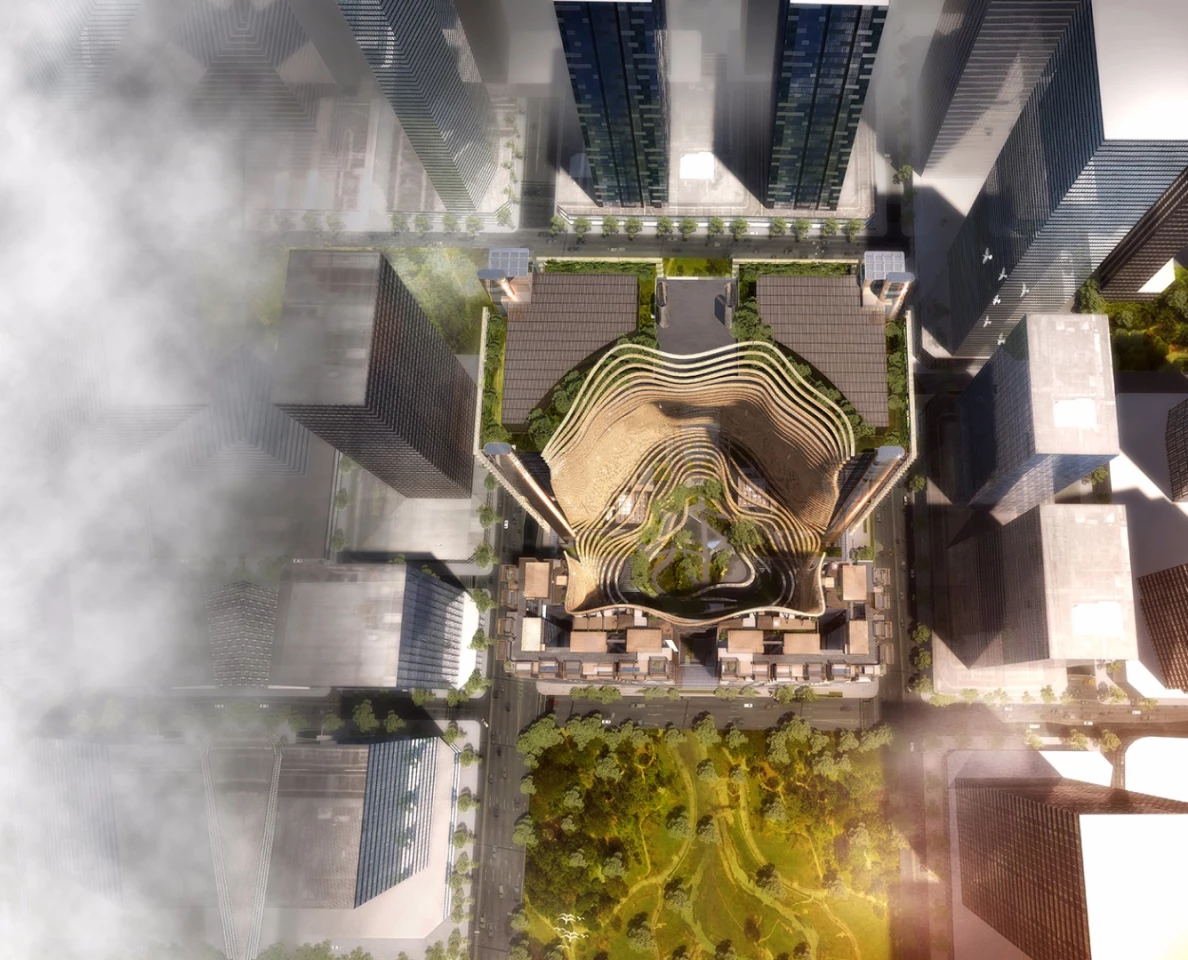
The office towers will have two sky gardens and two high-density floors on levels 28 and 29 that are planned to house the largest "Grade-A" (highest quality) office floors in Singapore. The residential towers, meanwhile, will house 1,042 city luxury apartments ranging in size from one to four bedroom units to penthouses.
Ingenhoven says Marina One has been designed to build consideration of the energy and resources used for the design, construction and ongoing operation of the building into their projects. As a result, the firm says that Marina One is LEED Platinum pre-certified for office towers – meaning that, based on its design, it will be efficient in its use of resources like water and energy, as well as in terms of its greenhouse gas emissions. Green Mark Platinum certification, meanwhile, indicates that sustainable design, construction and operations practices have been used, too.
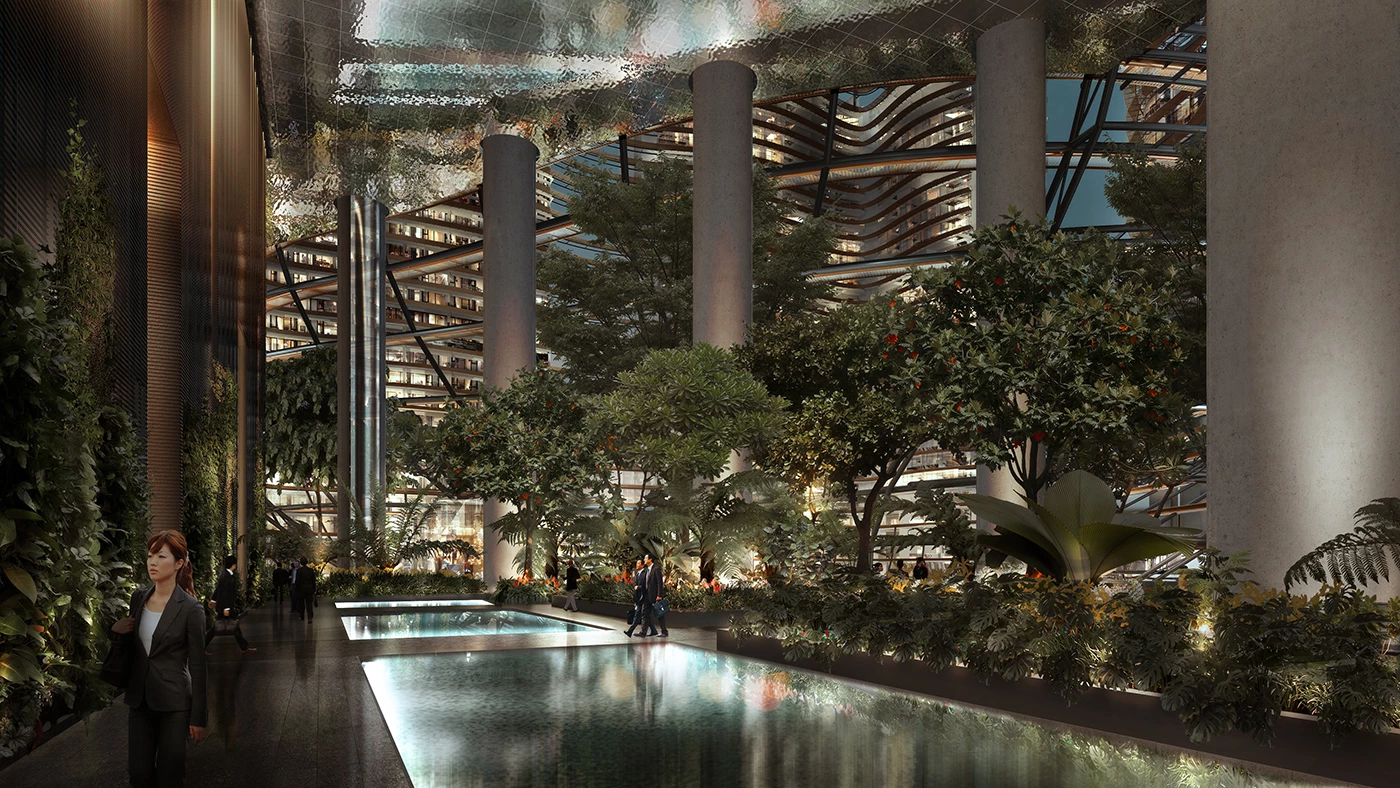
Among the development's energy-saving features will be a solar array that contributes to its power requirements and natural ventilation, as well as an external sun-shading system and high performance glazing to reduce direct solar radiation. Centrally provided recycled water for toilet flushing and a rainwater harvesting system will help to reduce water consumption.
Marina One will have a direct connection to Singapore's MRT lines and to its bus network. Bicycle parking spaces and electric vehicle charging spaces will also help to reduce emissions.
The development will be flanked by two large urban parks and will feature a variety of restaurants and cafes, a fitness club, a food court, a large supermarket and event spaces.
Marina One is expected to be completed at the beginning of next year.
Source: Ingenhoven Architects
